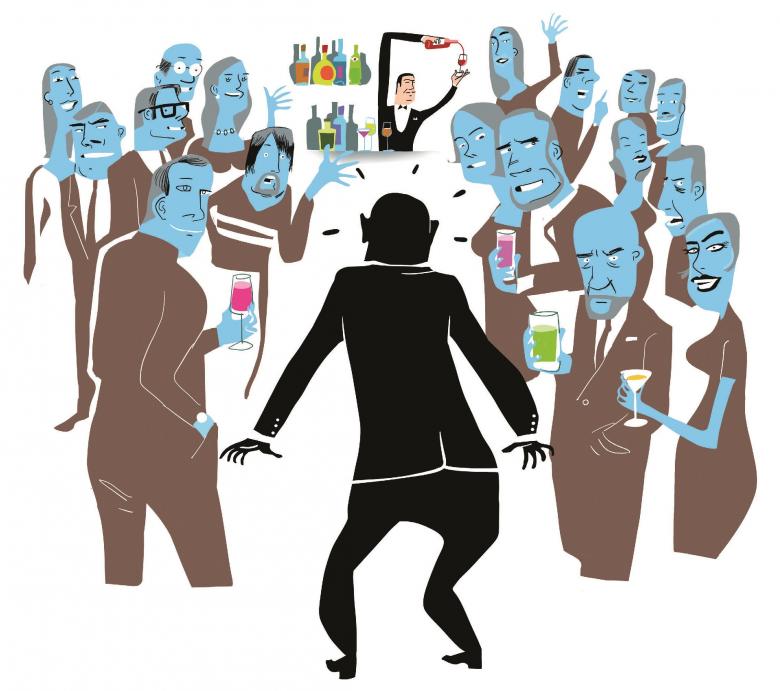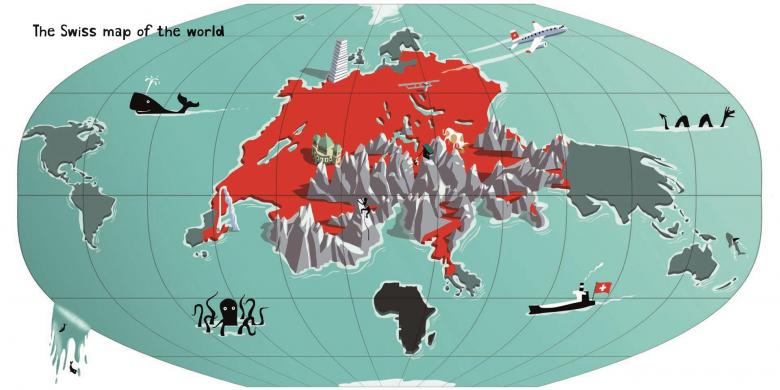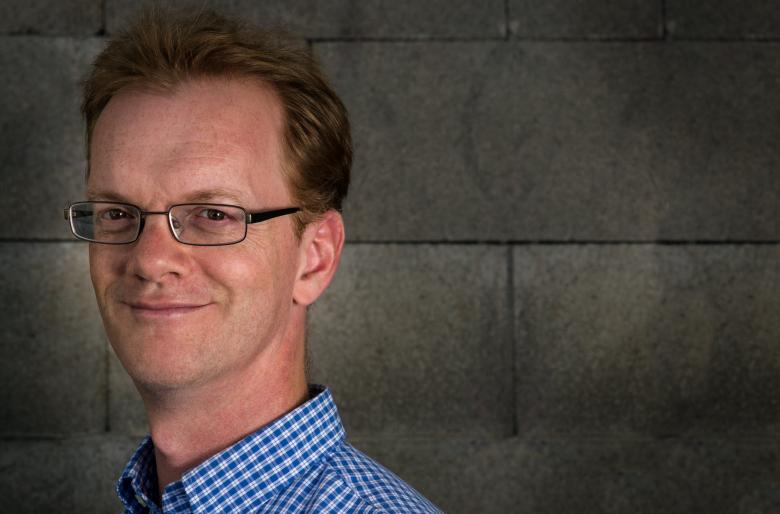Diccon Bewes – The Englishman who makes the Swiss laugh
Diccon Bewes is a best-selling author of books about Switzerland. This Englishman takes a wry yet affectionate look at his adopted country and its people, enthralling his readers as he takes them on a fantastic journey across Switzerland.
Long before he became an expert on Switzerland, Diccon Bewes worked in the renowned bookshop and purveyor of Swiss literature, Stauffacher, in Bern. Much has changed since then: in the space of seven years he has published five books on Switzerland, including Swiss Watching and Around Switzerland in 80 Maps. All have become best-sellers both in his adopted country and elsewhere. Given his success, it was perhaps not surprising that Diccon Bewes acted as an unofficial cultural ambassador of the House of Switzerland during the London Olympics in summer 2012. He is also regularly invited abroad to talk about Switzerland.
Yet, when Diccon moved to Switzerland 12 years ago he knew very little about his new home. However, as a former travel writer who contributed to guides like Lonely Planet, he was well-accustomed to casting an insightful yet witty eye on the countries he was visiting. From the outset, Diccon Bewes was determined to integrate into Swiss life: already in his first week, he began taking language classes. These would later inspire his book False Friends - 51 Ways to Be Misunderstood.

“The Swiss are a bunch of coconuts”
Expatriates often seek out his advice on Switzerland and the Swiss. “Some say to me: ‘I’ve been here three months and I'm still waiting for a dinner invitation. Three months? Wait three years, more like”, he laughs. He likens the Swiss to coconuts. You have to work hard to break their protective outer shell. Though, his fellow British countrymen and women are also renowned for their reserve. “Yes, but they’ll invite you for a coffee or strike up a conservation with you in the pub or at the bus stop. The Swiss take longer to open up. The lines of demarcation are much clearer here.”
He also learnt that the Swiss deploy humour, a very British 'weapon', very differently. “In the UK, people use it – in much the same way as small talk – to connect with others or to break an awkward silence. Here, if you try to be funny at work, it’s construed as a lack of professionalism. Of course, Swiss humour does exist, but as in many other aspects of Swiss life, it remains a very private affair, used only in the company of family and friends. The Swiss worry about not being understood.”

It is this keen wit which permeates all his books, whether in the personal anecdotes featured in Swiss Watching or in the comic sketches of How to be Swiss (illustrated by Swiss cartoonist Michael Meister), and which has made his works so popular with the Swiss. “What’s most gratifying is that the Swiss themselves buy my books. Of course, there are books on Switzerland out there, but they tend to be dry academic studies. I think I’ve held up a mirror to the Swiss that offered a reflection that they had never seen before but that they recognised nonetheless Also, they grasped that I was laughing with them, not at them.” As he is quick to point out though, neither he nor his London editor knew what to expect when the first edition of Swiss Watching was published in 2010. “We decided to print 5,000 copies, which is a very small print run by UK standards. In three to four weeks, they had all sold!” Swiss Watching, which is available in English, French and German, has now sold in excess of 100,000 copies.
Trains versus queuing
Diccon Bewes uses humour, but all his works are thoroughly researched. “It helped me understand and appreciate the reasons why the Swiss vote every three months!” The ‘Swissologist’ asked around 100 people what immediately sprang to mind when they thought of Switzerland. “What was particularly striking was that everyone had an image in their head. They were often clichés, but better a cliché than nothing at all!” In his most recent work, Around Switzerland in 80 Maps, each map comes with an explanatory text. “I didn’t want to overestimate my readers’ prior knowledge; I wanted to be informative and explain the reasons behind my choices.”

He continues to build on his knowledge of Switzerland as he criss-crosses the country giving talks in schools, at expatriate events and to hoteliers, entreating them to work on their Gastfreundschaft/hospitality skills. During his travels, he always finds it amusing to note that the Swiss are more like one another than they would have us believe. “Of course, it’s the same as if you are from Manchester. You think that Liverpool is the other side of the world. It's no different for someone from Bern and someone from Zurich. If you take language out of the equation, which is actually the main difference between the country's various regions, a person from Lausanne is pretty similar to a person from Lucerne. I always find it funny when someone in Lugano, Geneva or elsewhere says to me: You have got the Swiss spot on. But not us, we’re not like that!”
So, what irks him about Switzerland? Queuing, or rather the chaos involved. “Switzerland is an efficient, orderly country, and its people are polite... But that all goes out the window at the market or when you want to board a tram. These kinds of moment remind me that I’m English! Having said that, I get really frustrated in England when the trains don't arrive on time.” As for the capital, Bern, it is still “the best place to live in Switzerland. The city is small enough that you can walk everywhere. It also has a vibrant cultural scene and great restaurants. Coupled with the fact that you can be at the top of the Niesen, or in France, Italy or Germany in no time at all.” And, of course, there is the River Aare where the author goes for a daily dip in the summer months. Is there a new book in the offing? “I’m going to take some time out from that.” In the meantime, the writer is planning to apply for Swiss citizenship. “I pay my taxes here and I’m a fully-fledged member of the community. Also, I want to be able to vote. My life is in Switzerland now.”
To know more about Diccon Bewes: www.dicconbewes.com





